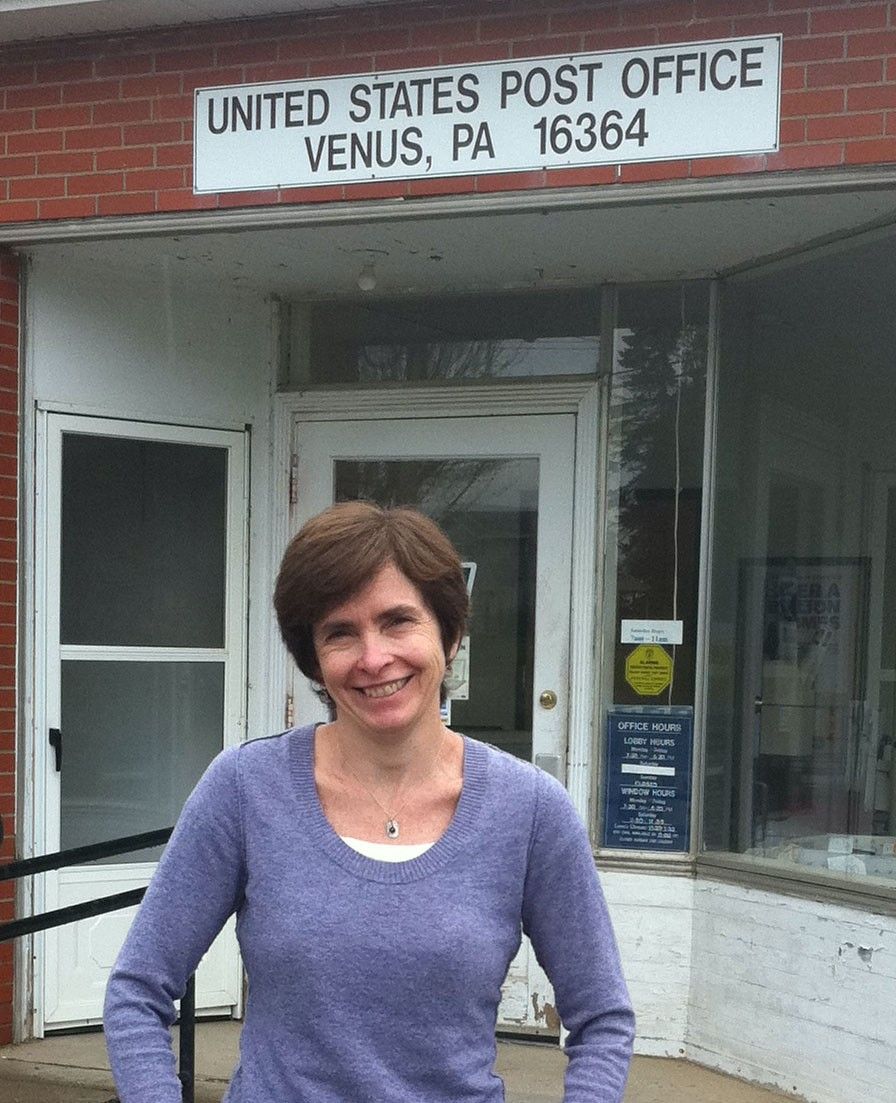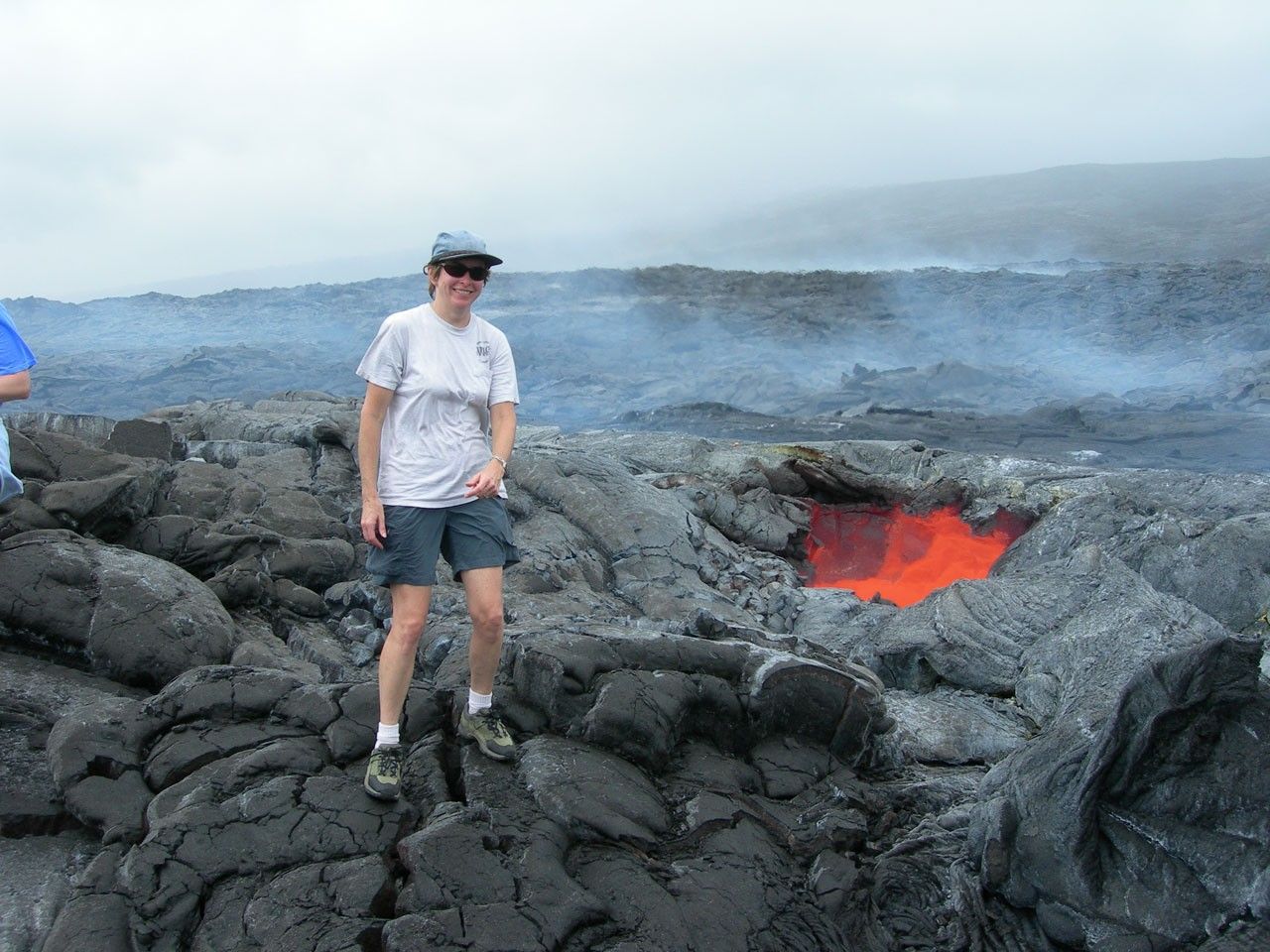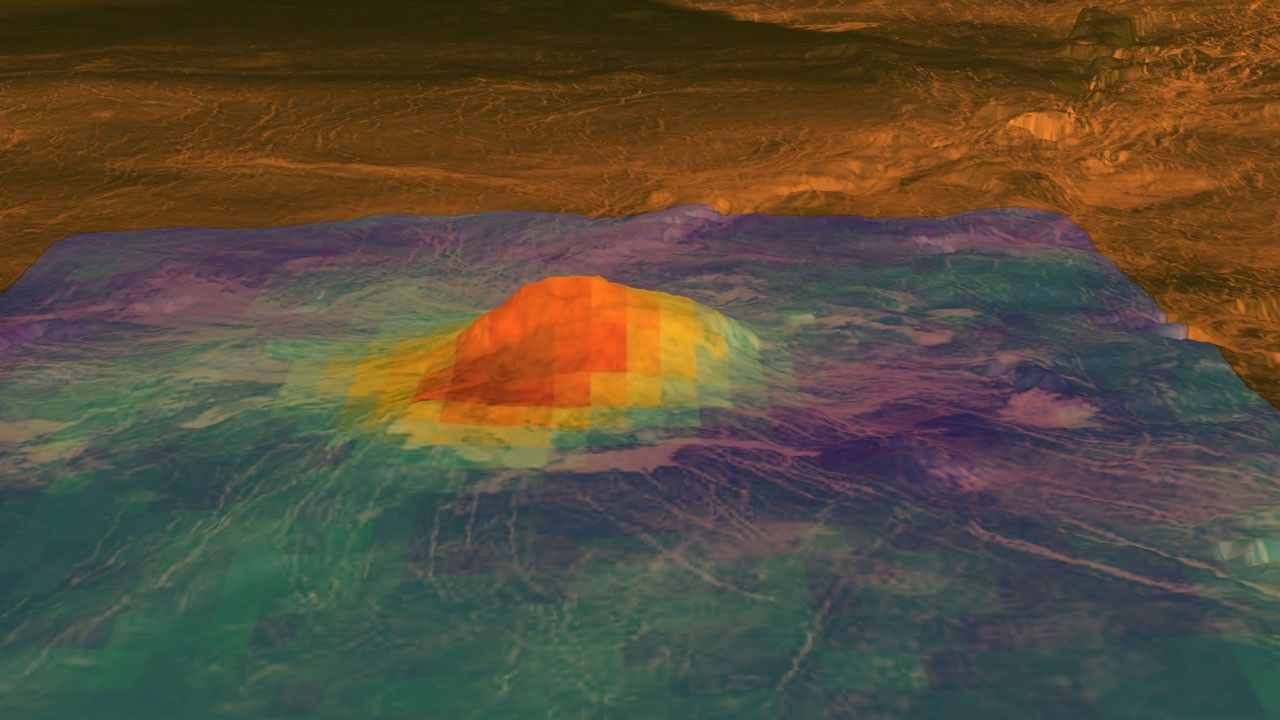
Sue Smrekar
Scientist - NASA's Jet Propulsion Laboratory (JPL)
Contents
- What first sparked your interest in space and science?
- How did you end up working in the space program?
- Tell us about your work. What do you do?
- What's one piece of advice you would give to others interested in a similar career?
- What has been your biggest challenge, professional or personal, and how did you overcome it?
- What have been some of your favorite projects to work on?
- What are some fun facts about yourself?
- Any hobbies, cool places you’ve been, personal anecdotes, etc., that you'd like to share?
- What is your favorite space image and why?
What first sparked your interest in space and science?
I loved math from an early age. I used to get my older brothers to ask me math questions as often as I could. The Apollo program was also immensely inspiring. It took an event that huge to make news in the woods of Maine! However, it wasn’t until I got to college that I had much idea of what a scientist actually does.
How did you end up working in the space program?
Even though I dreamed of being an astronaut as a kid, in college I sort of fell into planetary science. I had a vague idea that one had to be an army pilot, or some such thing, to become an astronaut.
Fortunately, I happened to go to a university with several professors of planetary science. I didn’t have a clear idea of a major, but I took a class in geophysics that I absolutely loved. Later I took a planetary geology class, and I ended up doing a summer research project. That taught me what research was all about and gave me the idea of going to graduate school.
Tell us about your work. What do you do?
I do a combination of research and science management. Research is my passion. I love trying to understand how planets work. That means coming up with hypotheses about why and how things like volcanoes and mountains form, and why Earth has these familiar features while other planets have crazy weird features. (How did they form? What makes each planet unique?) Then I use mathematical models to make predictions about how each process works to compare to data.
The science management part is about bringing together and fostering true communication and common purpose among diverse people, teams, interests, etc., to achieve the goal of exploring space. I’m deputy principal investigator for the InSight mission at Mars, and now I’m principal investigator on the VERITAS mission launching to Venus in a few years. It can be very challenging at times, but I feel very privileged to have my job.
What's one piece of advice you would give to others interested in a similar career?
Take lots of math! If you don’t love math, it may be that you got left behind at a key point, and you might just need to go back and acquire some confidence in it. If you still really don’t love math, there are certainly other paths to planetary science. In any case, find a topic that excites you and makes you want to know more. Find people to work with who will mentor you, and whom you find inspiring. Believe in yourself even if others don’t. Don’t take it personally if people make bad assumptions about you, but do show them they are wrong.
What has been your biggest challenge, professional or personal, and how did you overcome it?
I moved around a lot as a kid, mostly growing up in small towns in Maine, where lots of people worked in the tourist or logging trades. Neither of my parents went to college. I had a big imagination – I thought of being an astronaut, an architect, an astronomer, an anthropologist (I guess I was fixated on A’s!). But I didn’t know anyone who had a job remotely like that. So, I really had to forge my own path.
Additionally, now that I have some understanding of unconscious bias, I realize it has had a huge effect. People are wired to make assumptions about themselves and others all the time. Along with everyone else, I’ve had to overcome my own beliefs, and other people’s, about how I should act and what I’m capable of.
What have been some of your favorite projects to work on?
Magellan! That was the first mission I worked on. I got to see the first radar images come back from the surface of Venus, and I got to sit around the table with brilliant scientists from around the world examining these bizarre new landscapes, trying to imagine the forces that created them. It was exhilarating! I was hooked on space exploration, and on Venus!
For me, Venus is this fascinating world of contrasts. It’s called “Earth’s evil twin” due to its immense greenhouse atmosphere composed mainly of carbon dioxide that makes its surface hot enough to melt lead (~900°F). It’s the same size, at nearly the same distance from the Sun, and probably started out very similar to our planet. In fact, it may well have been the first habitable planet in our solar system.
The story of how Earth’s twin evolved to be such a hellish place has so many lessons for Earth and possible Earth-like planets in other solar systems. Venus is the only other body in the solar system besides Earth that may have continents and subductions zones. These features formed very early in Earth’s history, and we don’t have many rocks here that are that old. But Venus’ greenhouse makes its outer rock layers hot, just like on early Earth. So, we may be able to learn about the fundamental processes that shaped early Earth’s geology and climate by studying present-day Venus. It makes Venus sort of a “back to the future” version of Earth!
What are some fun facts about yourself?
My father was born in Venus, Pennsylvania, which is an unincorporated area in the
northwestern part of the state. I guess it’s in my blood – I was destined to study
Venus!
Any hobbies, cool places you’ve been, personal anecdotes, etc., that you'd like to share?
I love doing pretty much everything outdoors – I like to mountain bike, snowboard, hike, backpack, camp, garden, walk. I also like to cook, travel, to read, and I’m part of a Buddhist organization.
What is your favorite space image and why?
This image combines three datasets for Venus:
- Topography (gives the 3D effect)
- Radar images (the white-red-black variations) that show fractures in light colors and smooth surfaces in dark colors.
- Emissivity in the rainbow of colors overlaid on top of that. The hotter, redder colors have higher emissivity, which means the surface is giving off more heat. High emissivity corresponds to the youngest volcanic flows in these areas.
The flows are slightly hotter due to the different composition of the rock at the surface, not because they still retain heat from erupting. They have a different composition because they are too young to be fully weathered. When fresh lava erupts at the surface, the atmospheric gas interacts with it and changes it to have the same composition as the rest of the surface over time. We call this chemical weathering. Although we don’t yet know exactly how old these flows are, they reveal a geologically active surface. Volcanoes are windows into the interior of planets. So active volcanoes on Venus are super important for understanding how the planet operates.






























